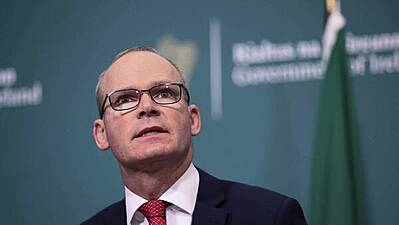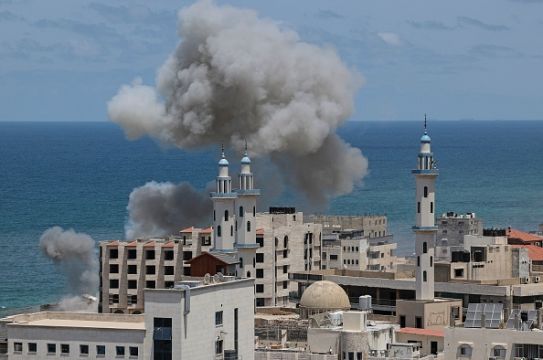European Union foreign ministers are set to call for a ceasefire between Israel and Palestinian Islamist group Hamas, offer more humanitarian aid and try to relaunch peace talks, Malta's foreign minister said.
EU foreign policy chief Josep Borrell began an emergency call with member states' foreign ministers after criticism of the West's response to violence that flared last week, including from Turkish president Tayyip Erdogan.
“I think I'm not being too optimistic [to say] that at a minimum, what will probably come out [of the EU meeting] is the call for a ceasefire, an offer of humanitarian aid, and then seeing how to restart the political process,” Evarist Bartolo told Reuters via video link after the ministers' call began.
After a ceasefire, the EU would “work with the United States, work with Russia to try and deal with the situation,” he said.
The EU is a member of the Middle East quartet of mediators, along with Russia, the United Nations and the United States.
Washington has long played a dominant role in Middle East peacemaking and US president Joe Biden supported a ceasefire during a call with Israeli prime minister Benjamin Netanyahu on Monday.
Right now, ending the ongoing violence in the #MiddleEast is our first priority. But we also need to talk about how we can avoid future escalations. The EU has a role to play here – through diplomacy as well as humanitarian aid. - Foreign Minister @HeikoMaas pic.twitter.com/lLqiqeYQRe
— GermanForeignOffice (@GermanyDiplo) May 18, 2021
Germany has called for a ceasefire and pledged €40 million in humanitarian aid for civilians in Gaza.
“An end to the violence is the first priority,” German foreign minister Heiko Maas said in a video statement streamed on social media.
The EU is Israel's biggest trade partner and a big aid donor to the Palestinians but member states are divided over policy and the bloc has been reluctant to use such leverage or discuss possible economic sanctions on Israel's government.

At least eight smaller EU states, led by Luxembourg and including Ireland, Belgium, Malta and Finland, are vocal defenders of the Palestinians.
Others, including Hungary, the Czech Republic, Austria, Greece, Cyprus and Poland, are more ready to defend Israel's interests. Austria flew an Israeli flag over the federal chancellery in Vienna on Friday.
Germany, which still carries the burden of guilt over the Nazi crimes of second World War, is unwilling to discuss coercive measures against Israel.
“The European Union should have, right now, a leading role [in diffusing the crisis]. It doesn't have that role, either because of differences in approach by member states or because there is no strategic approach from Brussels,” Cypriot foreign minister Nikos Christodoulides told Cyprus’s Alpha TV.







